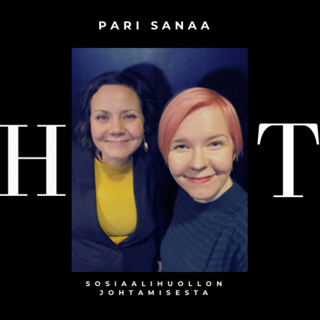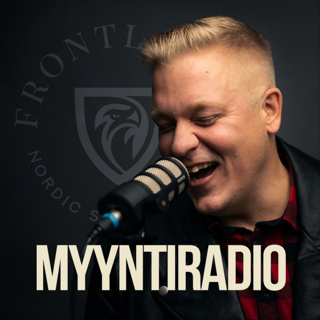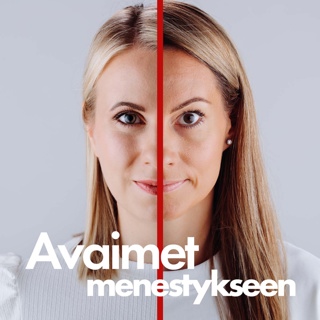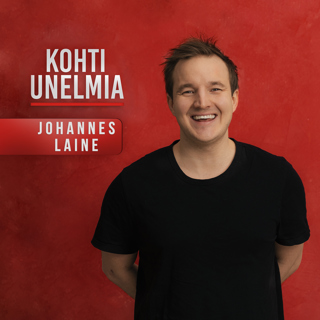
#066: Interview with Magda Schiegl
In September 2018 Tina Persson attended the annual Max Planck alumni meeting in Berlin and had a chance to speak with the professor for Applied Mathematics and Physics Dr. Magda Schiegl. Magda Schiegl made her PhD in Theoretical Plasma Physics at the Max Planck Institute for Plasma Physics in 1996 and then had a long career in the financial and energy industry. In 2009 she decided to come back to science and teaching, but this time, instead of theoretical plasma physics research, she chose the practical field of Risk Management and Applied Mathematics. She got a professorship position at the University of Applied Science in Cologne and later moved to Landschut, Germany. In this interview, Magda reflects upon how her experience as a PhD influenced her career and shares a tip on how to combine interests for the industry and practical problems with the passion for scientific research and education. For complete show notes, including links to items mentioned in this episode and a transcript of the podcast, visit www.phdcareerstories.com. You can also find us on social media: www.facebook.com/PhDCareerStories www.twitter.com/PhDCareerPod www.instagram.com/phdcareerstories www.linkedin.com/company/phd-career-stories
18 Tammi 20199min

#065: Ali Al-Sawalmih's Story
Dr. Ali Al-Sawalmih is the director of the Marine Science Station (MSS) Research Institute in Aqaba, Jordan and a researcher on Marine and Coastal Sciences at the University of Jordan in Aqaba since 2012. He has prior 5 years of experience in Germany on Marine Calcification at the Max Planck Institute of Colloids and Interfaces (MPIKG) in Germany. Dr. Al-Sawalmih earned the MSc degree in Physics at Stuttgart University / Max Planck Institute for Solid State Research (MPI FKF) in 2004, and PhD degree in marine materials at the RWTH Aachen University and Max Planck Institute for Iron Research (MPIE) in 2007. "For one who wants to be a researcher first before becoming a director or a manager being organized can save time, can make your work perfect and it can make you avoid mistakes as much as possible." Dr. Ali Al-Sawalmih
4 Tammi 201910min

#064: Fulvio Caruso's Story
Fulvio Caruso received his Ph.D. in Electronic Engineering in Palermo, Italy with a focus on hybrid inorganic-organic materials for photonics and optoelectronics applications. He joined industry in 2016 when he moved to Lausanne, Switzerland to start working at Novagan, an EPFL start-up company specialised in the nitride technology. In March 2018, Fulvio joined ABB Semiconductors in Lenzburg, Switzerland where he is currently working as a Process Engineer in the metal/PECVD production area for high-power semiconductor devices. When the PhD refuses to be a pure executor and starts looking both on the detail and the big picture, those are the elements that the industry really would need. And these are the skills that PhDs have acquired during their time at university. – Dr. Fulvio Caruso, Process Engineer at ABB Semiconductors
21 Joulu 201815min

#063: Girish Kedar Story
Girish Kedar was born and brought up in Mumbai, India. For his higher studies, he moved to Sweden in 2009 and since then he studied and worked in different European countries like Sweden, Germany, and The Netherlands. He holds pharmacist degree from India and PhD in Neuroscience from Vrije University, Amsterdam. After a big struggle in finding the right job in the pharma industry, Girish came up with a plan B -- he started his own business and founded The GLOVERK Consultancy, which is based in Amsterdam and provides services to the pharmaceutical and medical device industry. Along with Europe, GLOVERK also has an office in Pune, India. Girish is also a student ambassador in Vrije University and an independent Career Coach for PhD and Post-Doctorate candidates. In this episode, Girish contemplates about mistakes he made that complicated his job search and shares advice on how to avoid them. He also describes how the personal strengths he developed during his PhD helped him in the hard task of starting his own business. "Throughout PhD career, everyone thinks only about two options: either academia or industry. But I believe, PhD is way beyond that -- PhD prepares you for an even harder and better journey, where you can build up your own empire" Dr. Girish Kedar, PhD in Neuroscience, Entrepreneur, Career Coach For complete show notes, including links to items mentioned in this episode and a transcript of the podcast, visit www.phdcareerstories.com. You can also find us on social media: www.facebook.com/PhDCareerStories www.twitter.com/PhDCareerPod www.instagram.com/phdcareerstories www.linkedin.com/company/phd-career-stories
7 Joulu 201813min

#062: Andrew Quitmeyer Story
The career path of the guest of our today's episode is anything but conventional. Dr. Andrew Quitmeyer studied Engineering and Film Making during his master's degree. The trip to Galapagos deviated his direction and led him to pursue a tailor-made PhD degree at the crossing of Digital Media and Field Biology. Today Dr. Quitmeyer describes himself as a hacker and adventurer, studying intersections between wild animals and computational devices. His academic research in "Digital Naturalism" at the National University of Singapore blends biological fieldwork and DIY digital crafting. He runs "Hiking Hacks" around the world where participants build technology entirely in the wild for interacting with nature. His research also inspired a spin-off television series for Discovery Networks called "Hacking the Wild". The Digital Naturalism Conference is his largest initiative so far, and is leading him to start his own permanent Art-Science Field Station Fab Lab. For complete show notes, including links to items mentioned in this episode and a transcript of the podcast, visit www.phdcareerstories.com. You can also find us on social media: www.facebook.com/PhDCareerStories www.twitter.com/PhDCareerPod www.instagram.com/phdcareerstories www.linkedin.com/company/phd-career-stories
23 Marras 201819min

#061: Per Olof Arnäs Story
We are joined by Dr Per Olof Arnäs who is a logistics researcher, podcaster, public speaker, blogger and entrepreneur with an - as he puts it - unhealthy interest in the digitalization of transportation. Per Olof has been working in, around, and with the logistics industry since the late 1980s, both as a professional and as a researcher. He has a MSc in Mechanical Engineering and a PhD in Logistics from Chalmers University of Technology in Gothenburg, Sweden. He has also worked as a developer building sustainability tracking systems for the freight industry. Today, he is back as a senior lecturer at Chalmers after a long time in industry. Apart from his research, Per Olof is also a podcaster and a keen social media enthusiast. His first podcast (Logistikpodden, in Swedish) is one of the the largest logistics podcasts in Sweden. Together with Lena Göthberg, he also runs the show Podgeek, a podcast about podcasting (in Swedish). During 2018, he will also launch his first international podcast, Logistics Rocks. What is the feeling when you put your hand on the doorknob and enter your workplace? Do you feel happy or not? If not, you should look for something else. - Dr Per Olof Arnäs, Senior Lecturer, Chalmers University of Technology, Sweden x
9 Marras 201823min

#060: Joakim Muschött on making career choices with courage
Welcome back Joakim Muschött, ICF Professional Certified Coach (PCC) and founder and CEO of Skifta Utveckling AB. In episode episode #58, Joakim explained how career coaching can assists you in making the choices that best fit to your personality, to identify your expertise and skills and how to match these to your next career step. In his book on the topic "Courage" (Swedish: Mera mod!) he goes into details on how to face your fears and dare to step outside your comfort zone. Johan Bertil Muschött today interviews his father on what it takes to be brave and why its necessary for a successful career change.
20 Loka 201815min

#059: Tips&Tricks Tina Persson: on taking a postdoc position after a PhD
In this episode, the founder of the podcast Dr. Tina Persson discusses the question that every PhD faces sooner or later in his/her academic career: "Should I make a postdoc or not?" Tina, being the professional career coach and recruitment specialist in the present and the assistant professor in the past, provides the unique perspective on this issue and gives valuable advice. "In academia, we are trained to work hard, long hours, and tend to be very critical about our own achievements. That mindset must be re-evaluated to following: I can learn, I am not afraid to fail, I can ask for help, I like feedback, I can say "I don't know", and I contribute to a team." Dr. Tina Persson For complete show notes, including links to items mentioned in this episode and a transcript of the podcast, visit www.phdcareerstories.com. You can also find us on social media: www.facebook.com/PhDCareerStories www.twitter.com/PhDCareerPod www.instagram.com/phdcareerstories www.linkedin.com/company/phd-career-stories
12 Loka 201812min





















